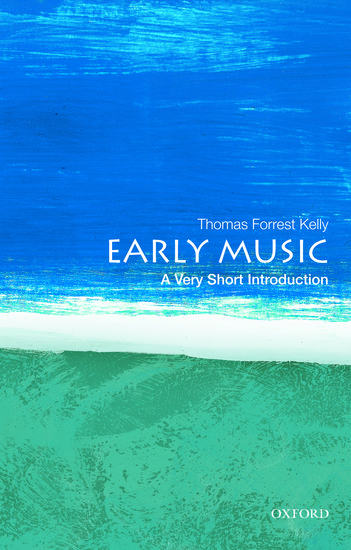Home >
A Very Short Introduction >
Organizations (Art)
A Very Short Introduction | Art
Organizations
ISBN: 9780199730766
Series: A Very Short Introduction
Organizations (Art)
A Very Short Introduction Organizations (Art) Media > Books > Non-Fiction > Education Books Expect Delays of Up to 4 Weeks| Order Below |
ISBN
9780199730766 (10-digit ISBN: 0199730768)
- Description
- Key Features
- Series Description
- Table of Contents
- Written by one of the leading scholars in the area of organization theory
- Demonstrates the origins of organization with examples of prehistoric humans organizing to hunt food, find shelter, and to protect and raise children, thereby forming the first organizations through families and tribes
- Uses examples from a variety of different contexts, from prehistory and everyday life to the animal kingdom and nature as well as in business and government
Most of us recognize that organizations are everywhere. You meet them on every street corner in the form of families and shops, study in them, work for them, buy from them, pay taxes to them. But have you given much thought to where they came from, what they are today, and what they might become in the future? How and why do they have so much influence over us, and what influences them? How do they contribute to and detract from the meaningfulness of lives, and how might we improve them so they better serve our needs and desires?
This Very Short Introductions addresses all of these questions and considers many more. Mary Jo Hatch introduces the concept of organizations by presenting definitions and ideas drawn from the a variety of subject areas including the physical sciences, economics, sociology, psychology, anthropology, literature, and the visual and performing arts. Drawing on examples from prehistory and everyday life, from the animal kingdom as well as from business, government, and other formal organizations, Hatch provides a lively and thought provoking introduction to the process of organization.
Oxford's Very Short Introductions series offers concise and original introductions to a wide range of subjects--from Islam to Sociology, Politics to Classics, Literary Theory to History, and Archaeology to the Bible.
Not simply a textbook of definitions, each volume in this series provides trenchant and provocative--yet always balanced and complete--discussions of the central issues in a given discipline or field. Every Very Short Introduction gives a readable evolution of the subject in question, demonstrating how the subject has developed and how it has influenced society. Eventually, the series will encompass every major academic discipline, offering all students an accessible and abundant reference library.
Whatever the area of study that one deems important or appealing, whatever the topic that fascinates the general reader, the Very Short Introductions series has a handy and affordable guide that will likely prove indispensable.
Please note: As this series is not ELT material, these titles are not subject to discount.
Introduction
1: What is organization?
2: What is the best way to organize?
3: What does it mean to be an organization?
4: Who does organizing serve?
5: How does organizing happen?
6: Why do organizational scholars disagree?
7: Where do we go from here?
Most of us recognize that organizations are everywhere. You meet them on every street corner in the form of families and shops, study in them, work for them, buy from them, pay taxes to them. But have you given much thought to where they came from, what they are today, and what they might become in the future? How and why do they have so much influence over us, and what influences them? How do they contribute to and detract from the meaningfulness of lives, and how might we improve them so they better serve our needs and desires?
This Very Short Introductions addresses all of these questions and considers many more. Mary Jo Hatch introduces the concept of organizations by presenting definitions and ideas drawn from the a variety of subject areas including the physical sciences, economics, sociology, psychology, anthropology, literature, and the visual and performing arts. Drawing on examples from prehistory and everyday life, from the animal kingdom as well as from business, government, and other formal organizations, Hatch provides a lively and thought provoking introduction to the process of organization.
Key Features
- Written by one of the leading scholars in the area of organization theory
- Demonstrates the origins of organization with examples of prehistoric humans organizing to hunt food, find shelter, and to protect and raise children, thereby forming the first organizations through families and tribes
- Uses examples from a variety of different contexts, from prehistory and everyday life to the animal kingdom and nature as well as in business and government
Series Description
Oxford's Very Short Introductions series offers concise and original introductions to a wide range of subjects--from Islam to Sociology, Politics to Classics, Literary Theory to History, and Archaeology to the Bible.
Not simply a textbook of definitions, each volume in this series provides trenchant and provocative--yet always balanced and complete--discussions of the central issues in a given discipline or field. Every Very Short Introduction gives a readable evolution of the subject in question, demonstrating how the subject has developed and how it has influenced society. Eventually, the series will encompass every major academic discipline, offering all students an accessible and abundant reference library.
Whatever the area of study that one deems important or appealing, whatever the topic that fascinates the general reader, the Very Short Introductions series has a handy and affordable guide that will likely prove indispensable.
Please note: As this series is not ELT material, these titles are not subject to discount.
EASY ORDER FORM
PRICES LISTED INCLUDE CONSUMPTION TAX
Price Before Tax:
¥1,790


